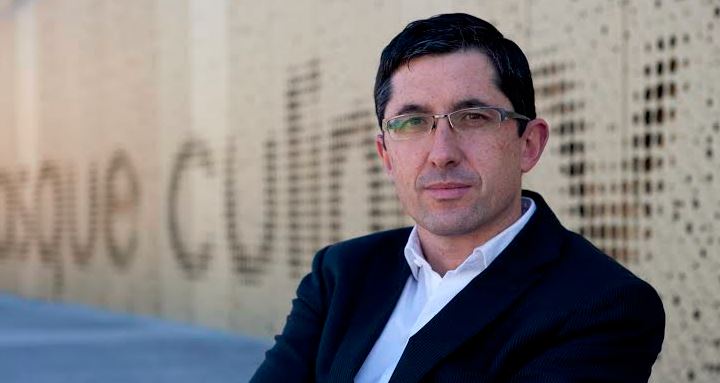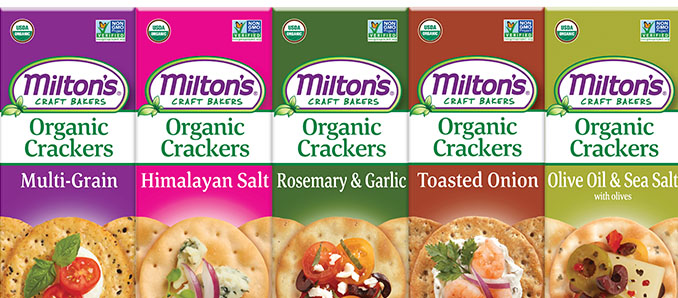THE BASQUE CULINARY WORLD PRIZE:
WORLD’S MOST INFLUENTIAL CHEFS BACK NEW INTERNATIONAL AWARD TO CELEBRATE CHEFS WHO “IMPROVE SOCIETY THROUGH GASTRONOMY”
 With just a month left before the closing of nominations for The Basque Culinary World Prize (April 30th), renowned chefs from its international Judging Academy have called on those working in gastronomy to nominate a deserving chef. Uniquely in gastronomy, the prize will be awarded to a chef who makes a positive impact on society ‘beyond the kitchen’.
With just a month left before the closing of nominations for The Basque Culinary World Prize (April 30th), renowned chefs from its international Judging Academy have called on those working in gastronomy to nominate a deserving chef. Uniquely in gastronomy, the prize will be awarded to a chef who makes a positive impact on society ‘beyond the kitchen’.
Heston Blumenthal said:
“It is fantastic to be involved in the Basque Culinary World Prize and to be part of the judging panel; to acknowledge and reward the very best chefs across the world. These awards are important as they identify men and women in gastronomy making a difference ‘beyond the kitchen’ to create a change through innovation and creativity. Innovation and creativity is what I’ve always based my work on and I’m very passionate about it. I’m looking forward to celebrating chefs who are striving to improve society through gastronomy.”
Blumenthal himself campaigns for many social issues – including drug and alcohol abuse within the hospitality industry – and is an active supporter of British farming.
Fellow juror Massimo Bottura, who is chef patron of the three Michelin-starred Osteria Francescana in Modena and known for his passionate views and activism, said:
“With this prize, we hope to share with the world stories of chefs that are using gastronomy for a better future. We need people to nominate those who are fighting for it in any way, even on a small scale: we are all part of the revolution.”
Bottura expressed his pride to be involved in this unique prize, which he hopes will ‘inspire and mobilize’ future generations:
“Because I am convinced that culture, knowledge, consciousness and a sense of responsibility are the basics for the chef of the future, I am proud to be part of this prize, hoping it will inspire and mobilize those who want to make a difference by committing themselves to society.”
Latin American superchef, Enrique Olvera, who heads Pujol, Mexico’s number one restaurant, added:
“If your work in the kitchen is good, it can do good to society. It can have an impact not only on people but also the environment, economy or culture. We are looking for nominations that express that reality, and to reward those who work for the greater good. It’s important to have the whole gastronomic sector involved in nominating.”
Enrique Olvera is known for his passion for cultural and ecological issues. As well as his commitment to the highest-quality, native, sustainable produce, he has also lobbied against GM crops and taken part in educational programs to improve the diet of children in his country.
ABOUT THE PRIZE:
The Basque Culinary World Prize launched earlier this year and will be judged by many of the world’s most influential chefs, including Blumenthal, aided by leading experts from other disciplines.
A generation of international chefs have now expanded their role in society and redefined their profession by integrating new skills, creativity, innovation and social concerns into their approach. The Basque Culinary World Prize will celebrate this evolution.
The prize will be an achievement award held annually that will celebrate a chef of any nationality who demonstrates how gastronomy can be a powerful force for change: those men or women whose impact can be felt ‘beyond the kitchen.’
The winner will have improved society in some way through gastronomy. This could be through culinary innovation, a commitment to social responsibility, sustainability or the economic development of their community; involvement in health or environmental campaigns, the promotion of pioneering cultural projects, or works that benefit society through their positive impact on the food industry.
To be considered for the prize, chefs have to be nominated online by a professional from the world of gastronomy. The winner will receive €100,000 to devote to an institution or project of their choice that demonstrates the wider role of gastronomy in society.
The prize will be awarded by the Basque Culinary Center (BCC) in San Sebastian, a world leading academic institution in gastronomy, and will be promoted by the Basque Government under the Euskadi-Basque Country Strategy.
The inaugural Basque Culinary World Prize will be first judged by a Prize Committee that includes Elena Arzak – one of the most celebrated female chefs in the world and a head chef at Michelin-starred Ametsa in London; Dr F. Xavier Medina – a social anthropologist and leading scholar of Food and Culture; Frédéric Duhart – an expert in anthropology and the history of food; Marta Miguel Castro – an expert in food science; and Jorge Ruiz Carrascal – Professor of the Department of Food Science at the University of Copenhagen.
By the end of May, the Committee will put together a list of 20 finalists to be considered by the Prize Jury, which includes the chefs on the International Council of the Basque Culinary Center chaired by Joan Roca (Spain): Gastón Acurio (Peru), Ferran Adrià (Spain), Alex Atala (Brazil), Dan Barber (US), Heston Blumenthal (UK), Massimo Bottura (Italy), Michel Bras (France), Yukio Hattori (Japan), Enrique Olvera (Mexico) and René Redzepi (Denmark).
The inaugural Basque Culinary World Prize will be judged by the chefs on the International Council of the Basque Culinary Center chaired by Joan Roca (Spain): Gastón Acurio (Peru), Ferran Adrià (Spain), Alex Atala (Brazil), Dan Barber (US), Heston Blumenthal (UK), Massimo Bottura (Italy), Michel Bras (France), Yukio Hattori (Japan), Enrique Olvera (Mexico) and René Redzepi (Denmark).
To judge the prize, the Council will be joined by leading experts in related disciplines, including US food scientist and writer Harold McGee; Massimo Montanari, a professor of Medieval History at Bologna University and one of the leading world experts in Food Studies; renowned novelist Laura Esquivel; and Hilal Elver, Special Rapporteur on the Right to Food for the United Nations High Commissioner for Human Rights (OHCHR).
All the members of the BCC’s International Council who are present at its annual meeting in San Sebastian in July will take part in the judging process, together with the guest experts. The decision on the winner of the Basque World Culinary Prize will be announced on the 11th July 2016.
“We believe the world of gastronomy can have a positive influence on society when chefs take on the responsibilities that come with having a public voice. Our aim is to uncover examples of great work that has made a difference from chefs around the world, whether they are known or unknown.”
Joxe Mari Aizega, Head of the Basque Culinary Center.
“The Basque Culinary World Prize will identify men and women working in gastronomy and striving to excel. The innovative, creative, determined – and sometimes impetuous – trailblazers who are engaged with their community and demonstrate every day how gastronomy can be an engine for transformation.”
Joan Roca, Chair of the International Council of the BCC, Chair of the Jury of the Basque Culinary World Prize, and founder of the three-Michelin-starred restaurant, El Celler de Can Roca.
“Cooking is not an end in itself, but a pathway to achieve more important things. It has real power to transform society because it touches everything: education, the environment, entrepreneurship, cultural identity, agriculture, trade. For a long time, that power has not been well understood. Today, finally it is. The kitchen has proven to be a powerful engine for change. Therefore, chefs must be committed and aware of the possibility they have to help create a more just, generous and sustainable society.”
Gastón Acurio, credited with the worldwide revival of Peruvian cuisine, runs over 40 restaurants worldwide.
“Cuisine is life: we cannot forget that. That is the reason I love seeing that some chefs trace their vocation back to their sense of humanity. I find this amazing, because it is not something ephemeral: it is the future of cuisine. Today’s chefs are wise to have set out on this path.”
Michel Bras, chef patron of three-Michelin starred hotel restaurant Bras, Aubrac, France.
“A growing number of chefs have joined the ranks of activists advancing the agenda of changing our food system… Today’s food culture has given chefs a platform of influence, including the power, if not the luxury, to innovate. As arbiters of taste, we can help inspire a Third Plate, a new way of eating that puts it all together.”
Dan Barber, chef, writer and founder of the Michelin-starred Blue Hill restaurant in Manhattan.
“Cooking means respecting rules, acting properly, working together. That’s why cooking is the perfect way to understand how life works.”
Massimo Montanari, professor of Mediaeval History and History Food at the University of Bologna.
“If your work in the kitchen is good, it can do good to society. It can have an impact not only on people but also the environment, economy or culture. We are looking for nominations that express that reality, and to reward those who work for the greater good. It’s important to have the whole gastronomic sector involved nominating.”
Enrique Olvera, head chef of Mexico’s number one restaurant, Pujol
HOW THE PRIZE WILL WORK:
To be considered for the award, chefs will have to be nominated by another professional who is currently working in the world of gastronomy – for instance, another chef, food writer or food supplier. Nominations opened on 1 February and will close on 30th April this year.
The Basque Culinary Center wants to use the collective knowledge of the gastronomic community to unearth candidates from around the world who have improved society through gastronomy but have not necessarily come to wider public attention. Anyone with a background working as a professional chef – from any culinary tradition – is eligible for the prize. Chefs can be nominated via the Basque Culinary World Prize website, www.basqueculinaryworldprize.com.
At the closing of nominations, the proposed names will be considered by the Prize Committee – a group of academics from the Basque Culinary Center and other universities – such as the Department of Food Systems, Culture and Society at the Universitat Oberta de Catalunya (UOC) – plus special guests. Together they will assess which of the nominees meet the judging criteria and will select a list of the strongest twenty finalists, which will be published on the 26 May. From these names, the Prize Jury will choose a winner.








